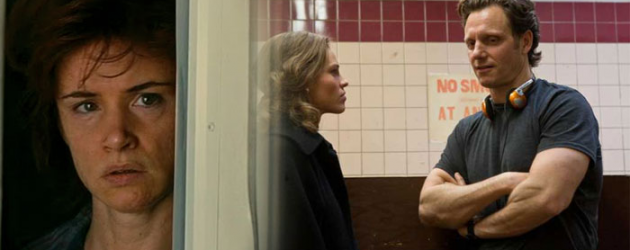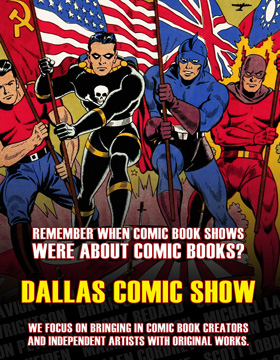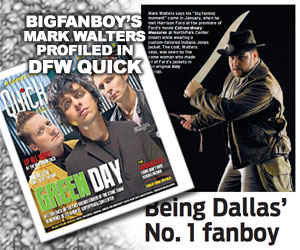.
.
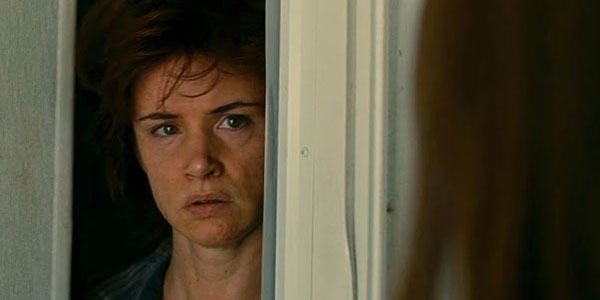
CONVICTION Press Tour Interviews
by Gary Murray
“I love to do the unexpected,” is how Juliette Lewis described her acting philosophy but the first thing one notices about her is how simply normal the woman comes across. In a cream print dress and flowing locks she looks more like a young mother than a serious actress. Known for playing challenging and dark characters, she was in Natural Born Killers, From Dusk Til Dawn and Kalifornia. Lately she has been focusing on her music career, appearing on the Warped Tour and taking small roles here and there between gigs. Lewis was recently in town to discuss her latest role of Roseanna Perry in Conviction.
The story is of Betty Anne Waters and her brother Kenny. He is accused and convicted of a murder, a murder that Betty Anne knows he didn’t do. She goes from high school drop-out to bar-certified lawyer with a single goal, to prove her brother’s innocence. Her journey leads to Barry Scheck and the Innocence Project, a group of lawyers who work to overturn wrongly convicted individuals.
With DNA evidence Kenny is proven innocent, but the prosecutor will not overturn the conviction because two different women testified that Kenny admitted to committing the crime. Juliette plays Roseanna Perry, one of the women. Even though she appears in only two scenes, it is a powerful award-winning turn. The two scenes take place years apart and we see the ravages of life on Roseanna Perry, with gray skin and broken teeth.
On playing a character that is so different from standard Hollywood beauty, Juliette said, “I loved it and it is sort of what I live for. I didn’t start making movies to play myself. This is actually a unique role for me because I have never transformed so completely. There is absolutely nothing like me in the role.” She claims that she didn’t grow up with a lot of vanity and she rebels against it. “This is a real person and a real personality in our world.”
To prepare for the role, Juliette worked with a dialect coach with breaking down the accent, listening to the deposition tapes that Betty Anne obtained. She also relied on director Tony Goldwyn and his ‘director’s eyes’ to make sure she was landing in the right place.
“When doing the role, you want it to disappear,” she said. “I don’t want the audience to ever think about my accent or my aged skin and teeth. I want to integrate it all into this organic seamless character. And that is the challenge for me, ‘Can I do it?’ At the end of that big scene, you get that she is manipulative–she’s conscious of her intentions–but all within it, she bounces around. You think she’s a bit out to lunch but then you realize that’s she not. That is what is interesting about it.”
Juliette was completive on playing such a little part. “It was funny to do a role that was so small but have so much in both of those scenes. I wanted to to have such a complete presence in both places. It is an eighteen year life-span. You start with the eyes showing this damaged soul and that she’s vindictive. You meet her eighteen years later and she lives in a world of her own fiction. She is faced with her own nemesis of a person who she wronged the most. I wanted you to make sure you really got a sense of her.”
Since she was playing a real person, she wanted to be exact in the role. She said, “Everything I say in the movie, about 98% of the movie, is from transcripts and interviews she gave. The bad use of grammar and the bad use of phrases is all her. I got an idea of what kind of a mess the person is. Roseanna Perry and Nancy Taylor were not in the process of making the movie because they committed crimes. At the end of the day, I’m intuiting and I’m putting together all these ingredients and realizing the part.”
She then added, “This is one of the most unique experiences and the reason you make movies is to shine a light on such an important subject about people being wrongly convicted. We don’t often hear about this. It is also to participate in a story that has such a heart. It is a love story about family love, faith and conviction.”
Though she never met with Roseanna Perry, Lewis said, “I like seeing the person and getting a sense of that person but you want to be true to that particular film. The writer and director are taking an eighteen year saga and putting it into two hours. It is my job to explore what a damaged, destructive soul looks like and how do they behave. That has always interested me.”
On being a working character actress she stated, “I was never conditioned to think ‘Will they like me or not? or ‘Will I be pretty? I really wanted to get into the skin of that kind of destructive personality. She’s been on a really bad destructive path. I wanted to get into that energy.” She summed up by saying, “I wanted to vibe the audience out.” The she added on, “You can illuminate many different sides of a character in a small amount of time.”
Juliette had nothing but praise for her cast. She calls Sam Rockwell as one of her favorite actors. “I was so happy” she stated, “to see him in this role.” On Hillary Swank she said, “Hillary is a force of nature because she is so committed and such a live wire. She has no vanity and her priority is her family and not Hollywood.”
Juliette doesn’t mind being on press tour, talking to reporters about her role and the Innocence Project, the Barry Scheck group of lawyers trying to use DNA evidence to free the wrongly accused. “We are all doing our part to get this film out because we all believe in it and think it is important. I am honored to be on such a great team.” She would love love to see her cast members to be acknowledged by the Academy but on her being nominated, she coyly said, “That’d be neat.”
The next couple of jobs are meatier roles and she considers this a next chapter in her life after her music career. “There are a lot of incredible filmmakers I’d love to work with and new talents.” Then she added, “I’m open to all things and all possibilities.” She is working on her own screenplay based on her life and imaginations.
Even though she is thought of for her more dangerous roles, she has a special place in her heart for one different role. “The Other Sister goes down as one of the most remarkable love filled and challenging experiences I have ever had. I wanted to do a good job and not a cliche.” She still gets responses about it to this day.
.
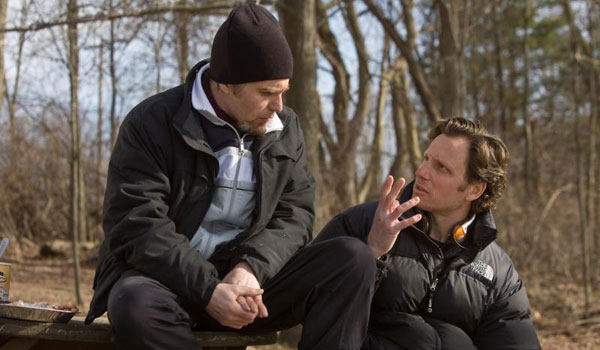
Director Tony Goldwyn
Tony Goldwyn is a man of many talents. He is an award-winning actor, director and producer. As a director, he helmed The Last Kiss and Someone Like You. Appearing in film, he as had roles in Ghost, The Last House on the Left and Tarzan. Tony has had roles both in television and in New York theater. He is in town for Conviction, his latest film that he directed. Accompanying him are actress Juliette Lewis who plays the part of Roseanna Perry and the woman the story is based on Betty Anne Waters.
The story of Conviction concerns Betty Anne (Hilary Swank), a high school drop out who goes back to school and on to law school just to be the lawyer for her brother Kenny Waters who is eventually exonerated from the accusation of murder. It is an eighteen year journey of faith and devotion with Minnie Driver playing Abra, Betty Anne’s friend and fellow lawyer. On tour with him are the real Betty Anne Waters and Juliette Lewis, who plays Roseanna Perry, a woman who testifies against Kenny.
Tony first heard of the story of Kenny on Dateline, told to him by his wife. “I thought that this woman spent eighteen years of her life on an act of faith of her brother when he easily could have been guilty . ‘What is that bond?’, I thought.” The sibling love story drove him to it and he was pursuing the rights with producers Andrew S. Karsch and Andrew Sugerman.
Written by Pamela Gray, Tony had some very specific ideas on the script. “It is very important for me to avoid melodrama and sentimentality,” he said. “I wanted the direction not to call attention to itself. I wanted to do it simply. My intention was a subjective reality so that we get sucked into Betty Anne’s experience and not be very conscious of the camera and what it was doing Not to do pyrotechnics of the story and trust the story and the actors to tell it.”
When asked about the hardest part of putting Conviction on the screen, Tony answered, “The trickiest part was for me creating the balance of casting doubt on Kenny. It was very important to me from the beginning in the way we told the story we weren’t doing this conventional thing of this is great heroine, look at this great injustice and look at how she beats the system. I wanted at a point for the audience to think ‘What a minute, he might have done it.’ To not be sure and to certainly believe that he could have. That to me was walking that balance with Kenny’s character where you fell in love with him in a way or at least understood or emphasized her love for him. At the same time you realize that he was scary, violent and not a Boy Scout. That duality in Kenny was a critical element in the story I knew that I had to be successful at that to make the movie I wanted to make.”
Tony was direct about casting even the smaller roles. He said, “When I first read this scene that Pamela sent me about Roseanna Perry, I thought it was such a fabulous character. Pam had written a scene where Betty Anne and Abra interview Roseanna. The scene was very good but Betty had found a tape of the real Roseanna Perry and you couldn’t believe the tape. When Pam heard the tape she threw out her scene and literally transcribed that interview into that scene. Everything that comes out of Juliette’s mouth, came out of that real persons mouth, all that syntax or lack there of. I read this and thought ‘Oh my God, whoever plays this part, which is such a great part even though it is only two scenes, I said ‘I hope an actress will appreciate what a brilliant role this is’. The right actor will.”
He met with Juliette for the role of Abra and after the meeting, he thought she would be perfect for the smaller role. When the casting director wondered if Julliette would take such a small role, Tony said, “I think Juliette Lewis will appreciate what a great part it is.” And within a day or two she accepted. She was the only person he considered for the part “and I could not have done better.”
Since many of the scenes were taken verbatim there was little fear of portraying anyone in a negative light. “We have the depositions and the public record of that happened and what was said,”explained Tony. “There is little grounds for libel.”
Though he is a stage and screen actor, he never thought of giving himself a role. “I didn’t feel that I was right for anything in this movie. When I put on a director’s hat, it is about the movie, I would only cast myself if I felt that I was really suited for the part.”
The film has been generating Oscar buzz for the last few months. Though Tony is grateful for the Oscar speculation, he’s truly grateful for the actors who worked on the film. “I’m thrilled that people are talking about that because it speaks to the fact that people are resonated with it.”
He finished the interview by saying, “For me the movie is about the transcendent power of love. Despite what ever life throws at you, if you have that, you have everything.”
.
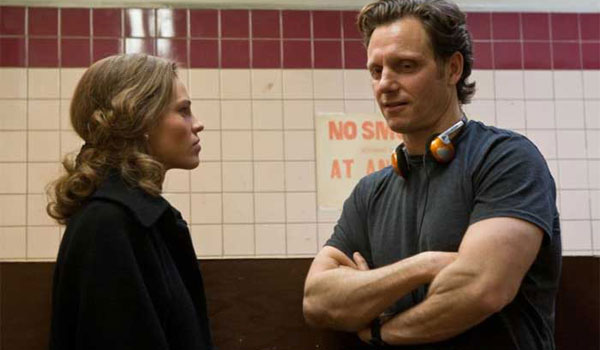
Betty Anne Waters
If someone would tell you the life of Betty Anne Waters, you would think ‘How tragic’. The high school drop out was working at a bar, slinging drinks in Massachusetts. Her rough and tumble brother is accused of murder, a crime she knows he didn’t commit. In prison, after her brother’s attempted suicide, she vows to get her GED, go to college, get a law degree, pass the bar and become Kenny’s attorney. Her story of freeing her brother was turned into a story on Dateline. After a few struggles the story of Betty Anne is now the Hillary Swank feature Conviction. Betty Anne was in town recently with director Tony Goldwyn and actress Juliette Lewis who appears in a small but pivotal role.
On Hillary Swank playing Betty Anne, she answered, “How lucky am I?” with a laugh. “I saw her in Boys Don’t Cry and Million Dollar Baby and I thought I’d be so lucky if she’d play me. And I got lucky.”
To get the screenplay right Betty Anne talked to Tony for fourteen hours, Pamela Gray (the writer) for fourteen hours and with all three for another 14 hours. “I felt like I was in therapy,” she laughed.
She is a woman with an infectious laugh and bright smile, nothing one would think a lawyer looks like. The path of Betty Anne was a long road from enrolling in community college, to passing the bar in two states. “I had to do it to keep him alive,” she said. “The worst part of my life was when my kids lived with their father. Its hard to open a book when you’re depressed.”
The film doesn’t mention it it but Kenny was killed in a car wreck a few months from his release. Said Betty, “This movie is about freedom and proving Kenny’s innocence. It is not about his death. You want to walk away from the movie feeling good that Kenny won. That’s what Kenny would have wanted.” One can tell by her voice that she loved her brother. She said, “If Kenny walked into a room you would want to just to be around him. He was a trouble maker but not that kind of a trouble maker, killing people for money.”
Sam Rockwell physically looks nothing like Kenny but Betty Anne did like his portrayal. At first she said, “How is Sam Rockwell going to be Kenny? (But) When I saw him on screen I really felt he got the many sides of my brother.” She described Kenny as a loveable person who wouldn’t walk away from a fight–not an aggressor but not afraid.
After Kenny was released, Betty Anne filed a civil suit against the police and prosecutors. “DNA evidence proved my brother was innocent and exonerated him but it didn’t prove what Nancy Taylor and the town of Ayers did to him. If I didn’t bring the civil suit, no body would have ever found out. From day one, (Investigating Officer) Nancy Taylor knew that there were bloody fingerprints in this case and that my brother was not a suspect. He was on the list of elimination. She went to the grand jury and told them there were no useable fingerprints, only fingerprints of the victim.” Then during the trial it was mentioned that a different suspect was eliminated due to fingerprints. Betty Anne added, “I’m not a genius or a scientist but I think if one person can be eliminated, everybody can be.”
Even though she’s proud of the movie, she is more proud of freeing her brother, stating “Barry Scheck is my hero.”
She’s seen the movie three times always through tears. “I don’t know if I’ve seen the real movie.” A scene of Kenny and Betty jumping on her grandfather’s truck was exactly like she remember it. “It brings me back like it was yesterday,” said Betty Anne.


